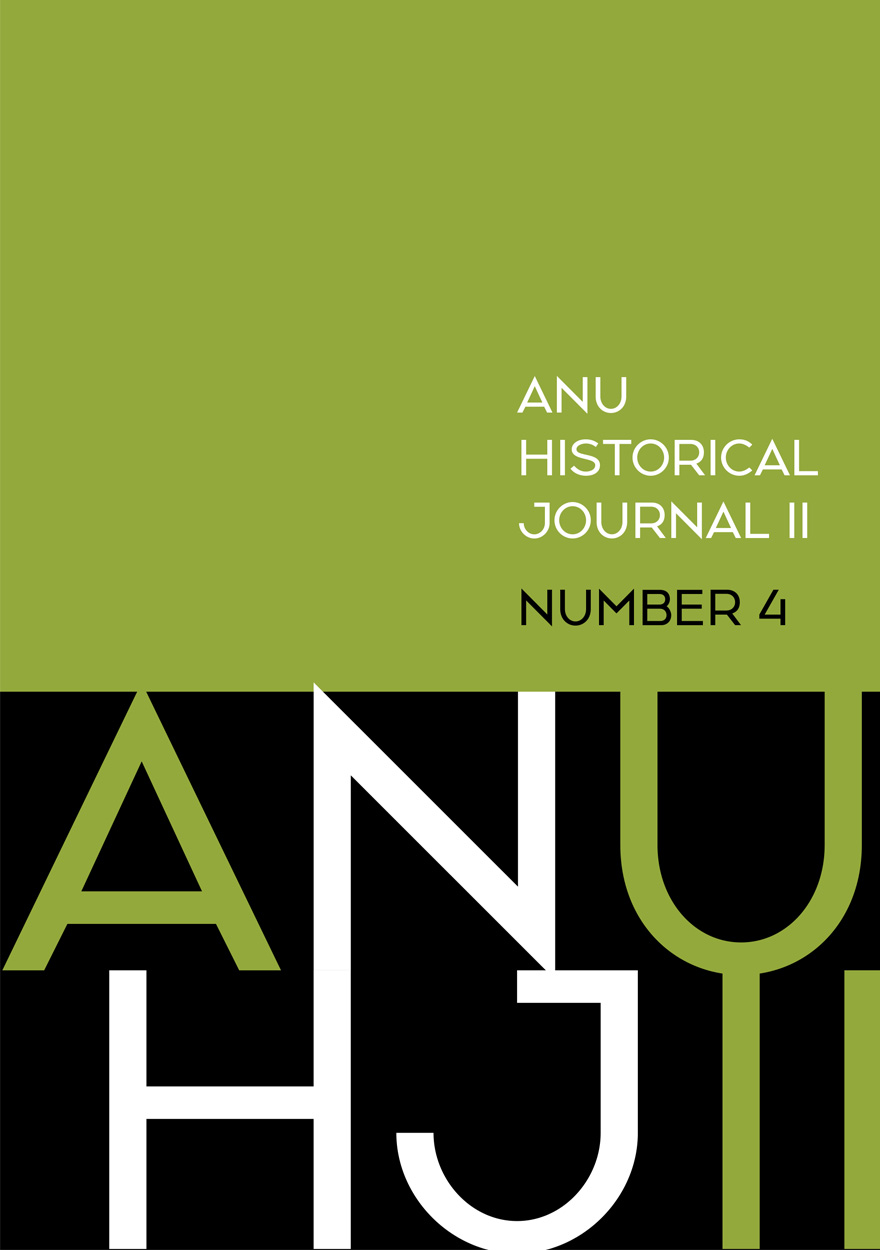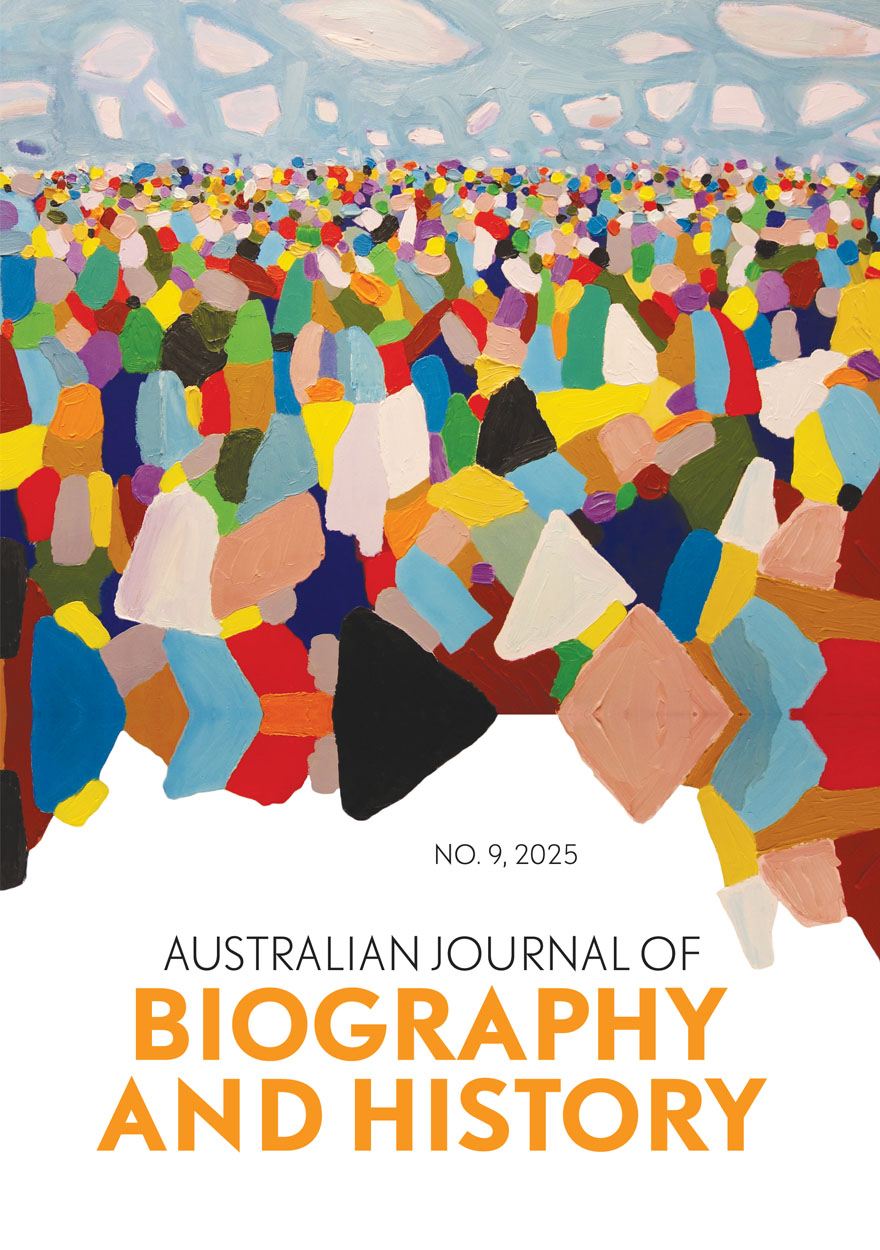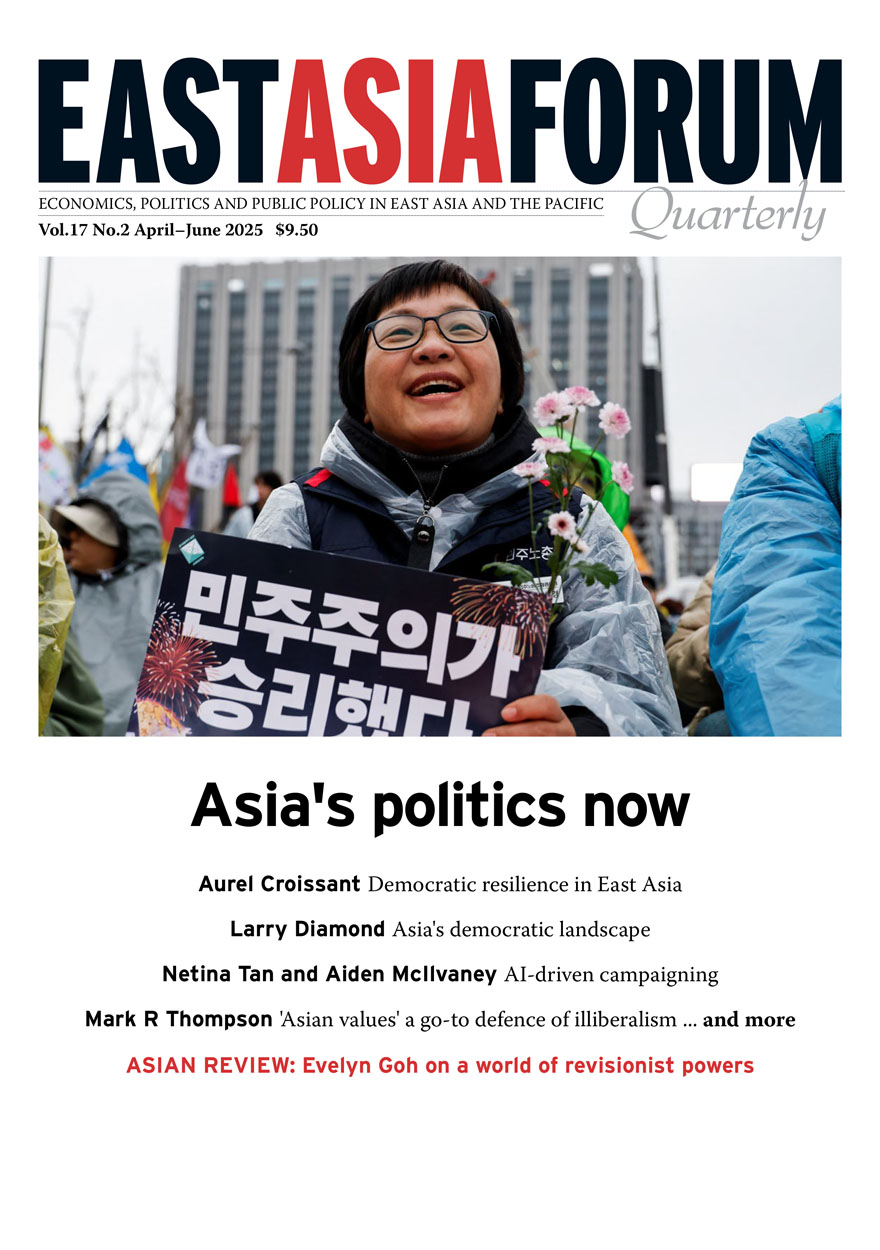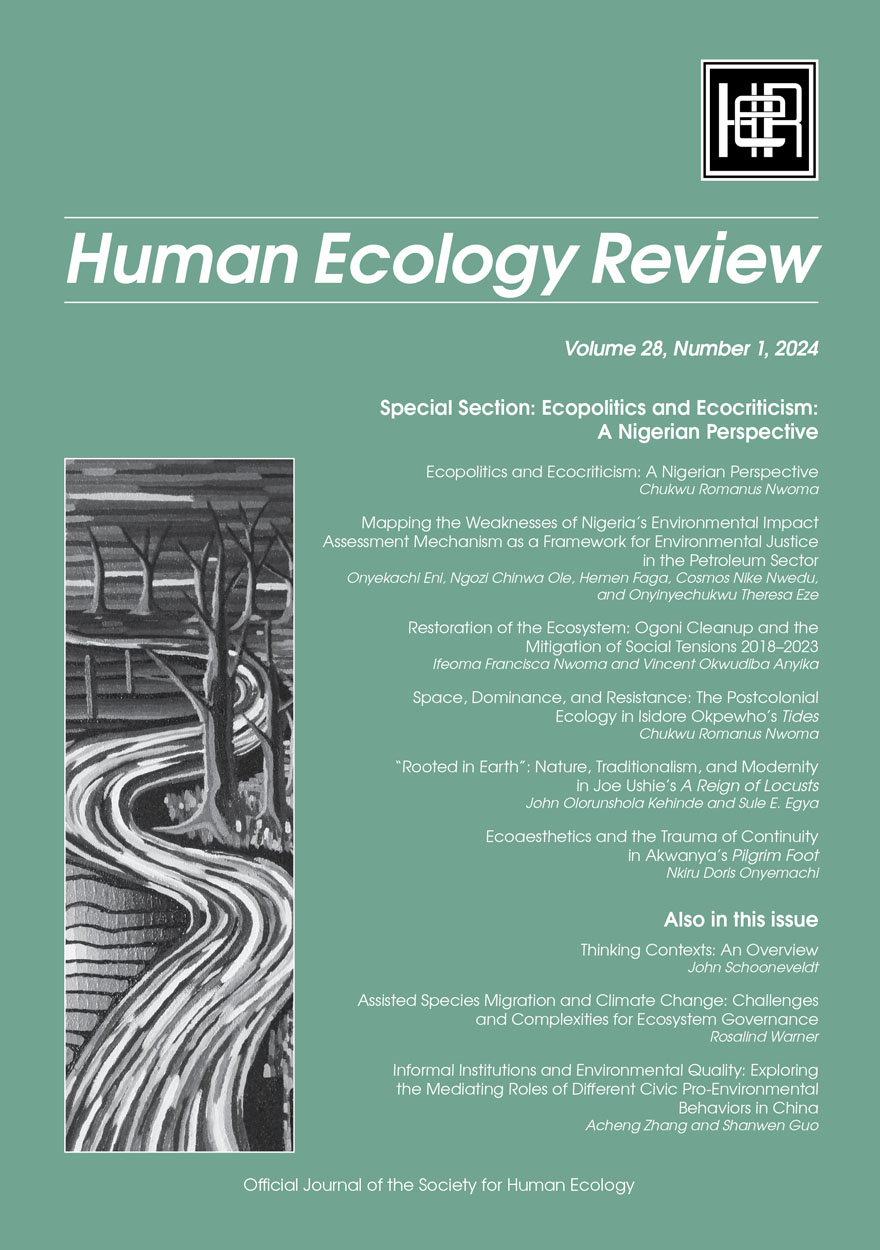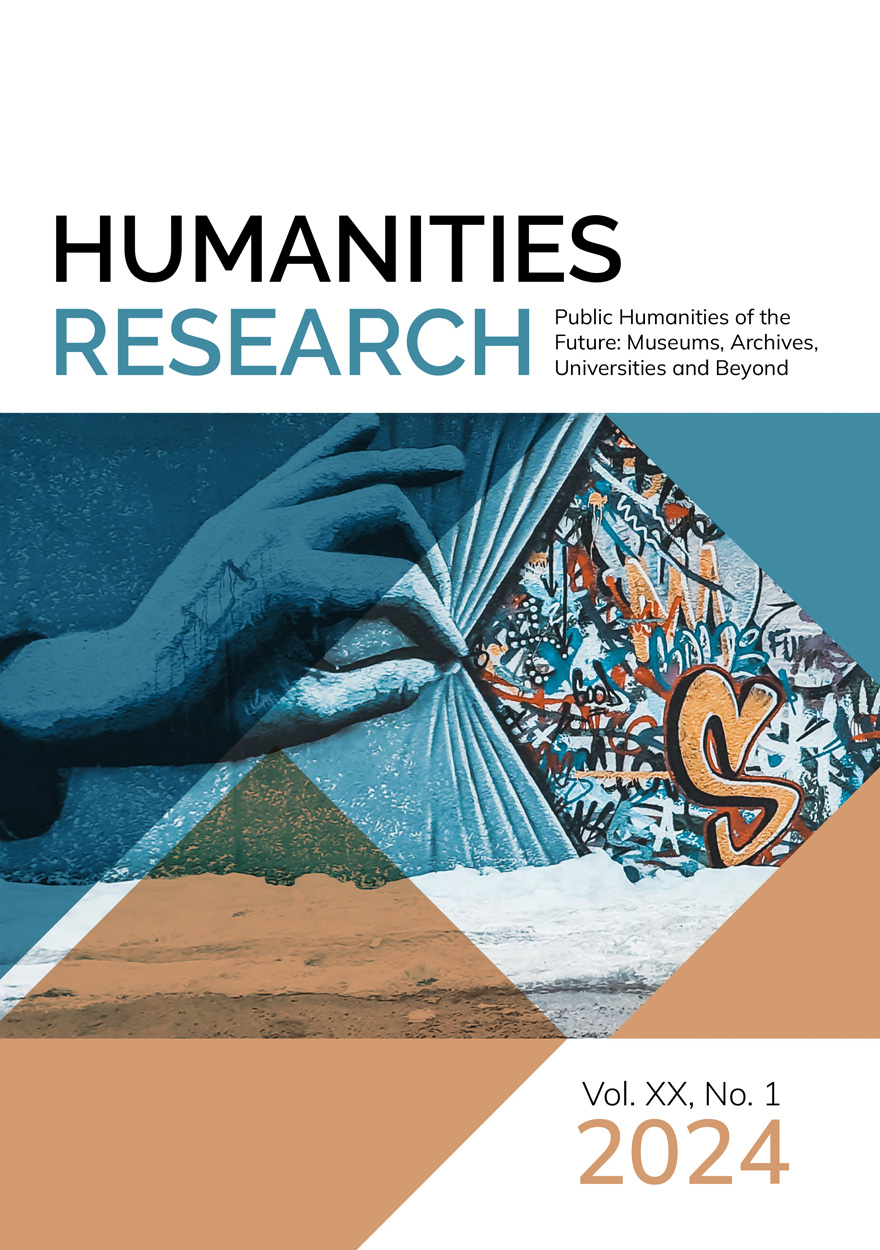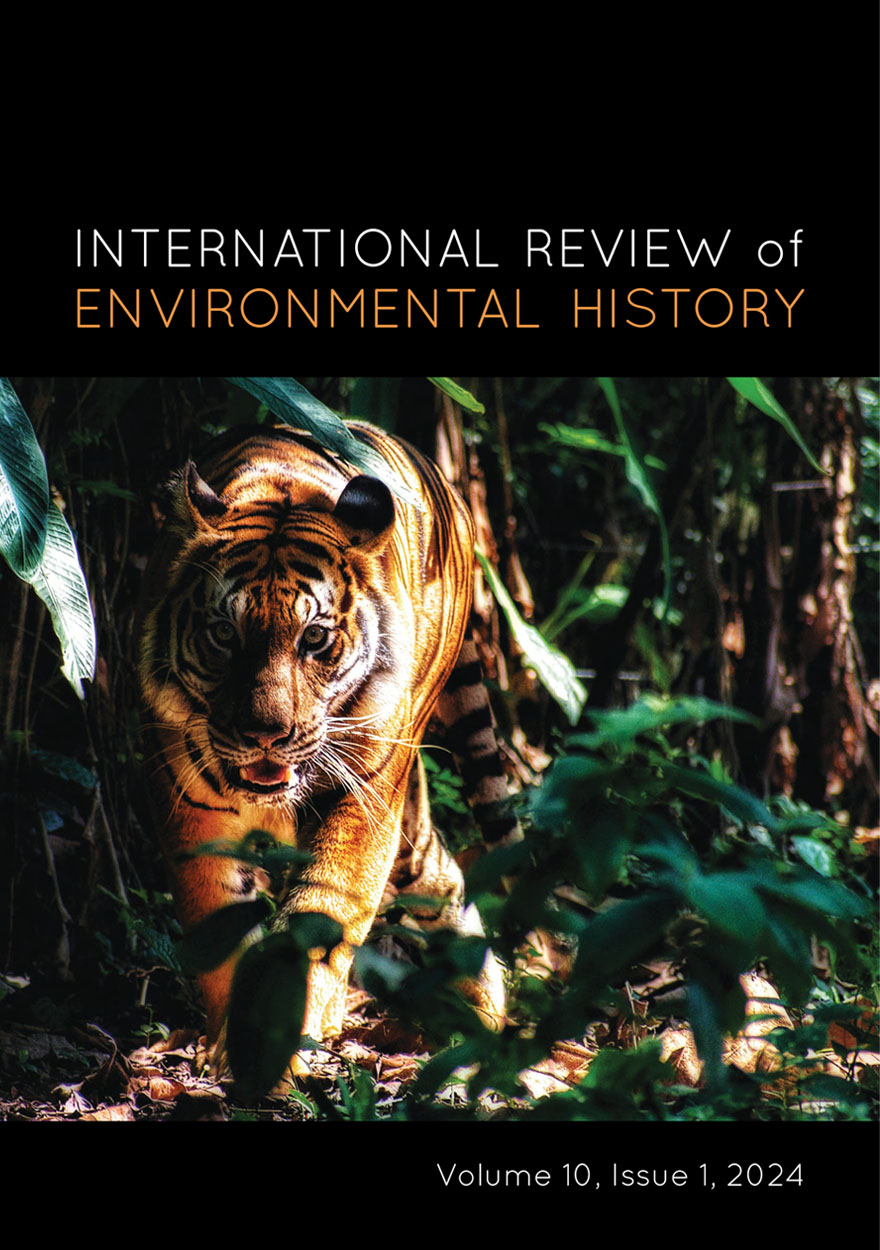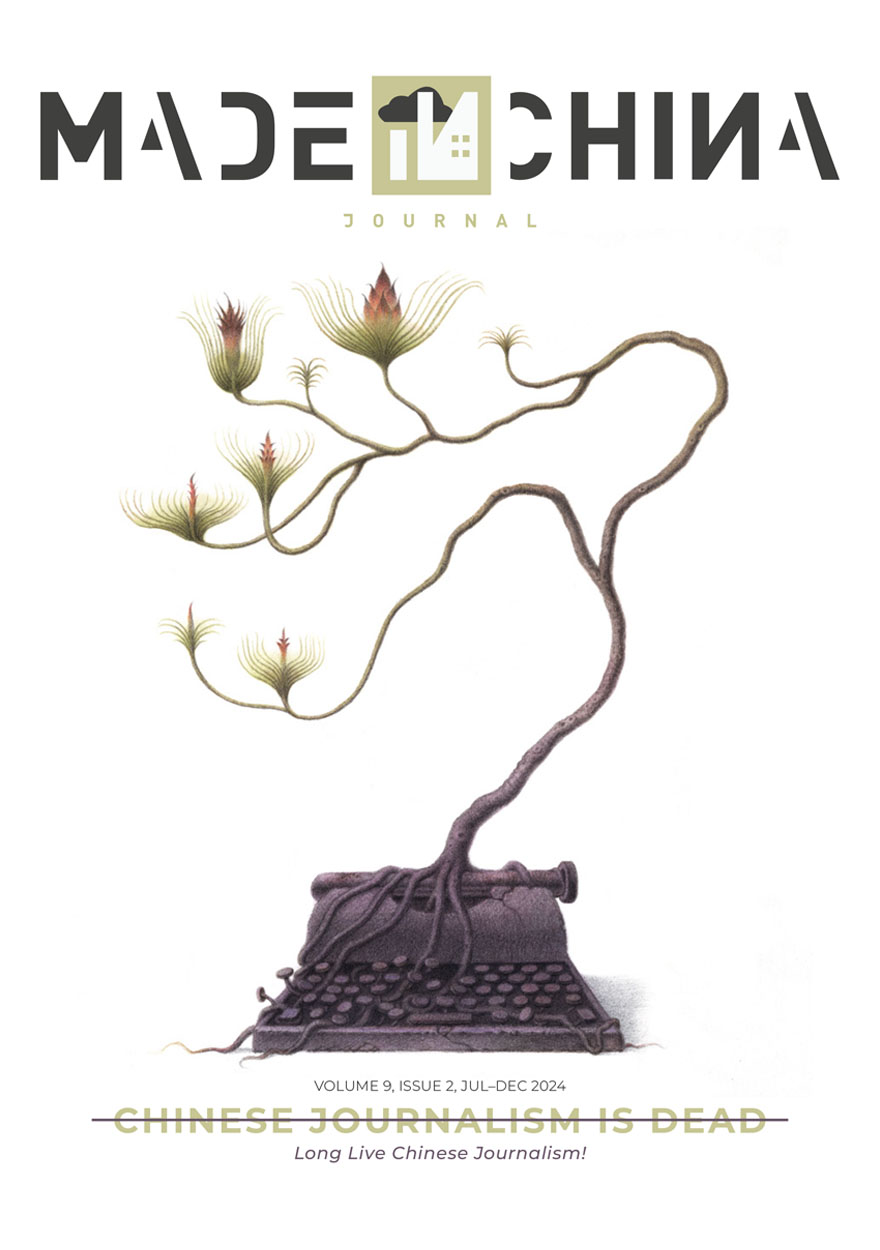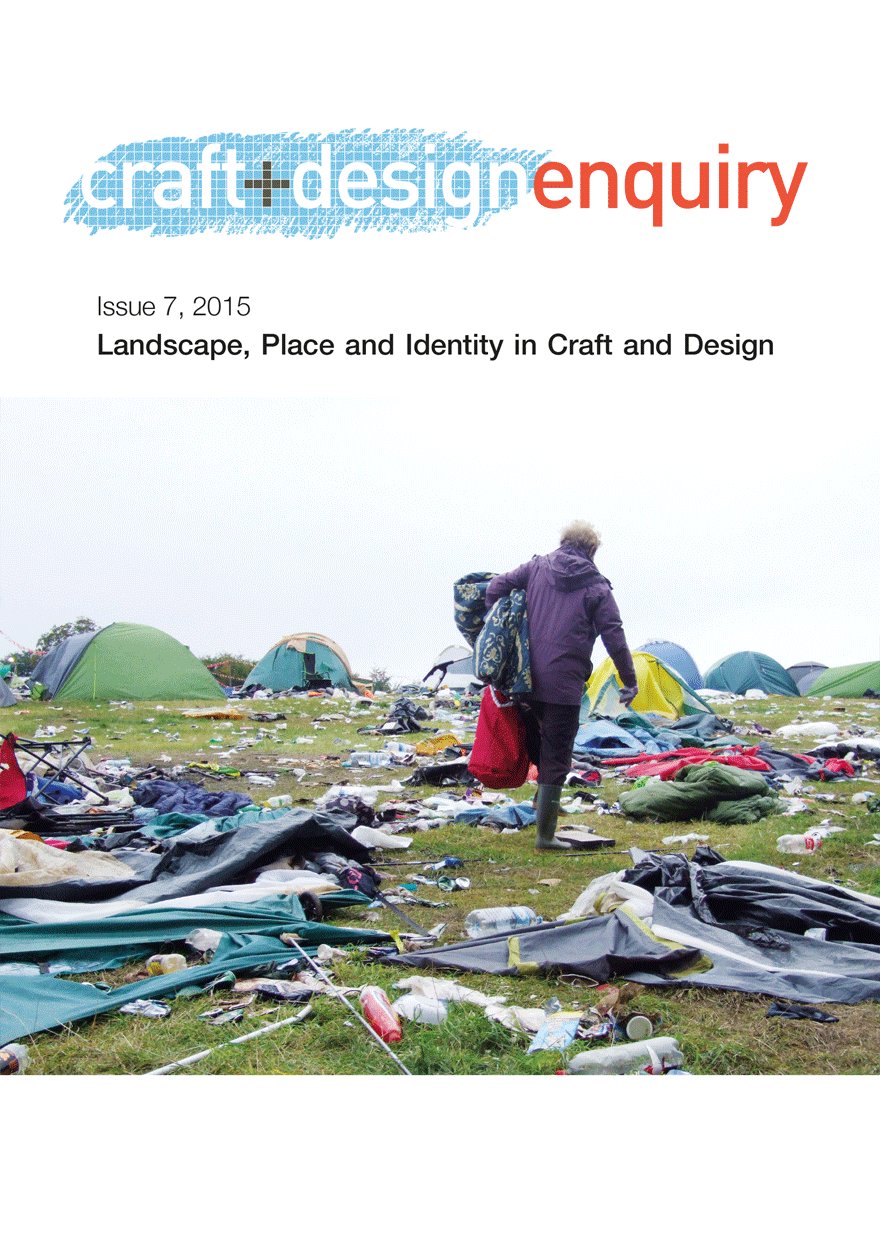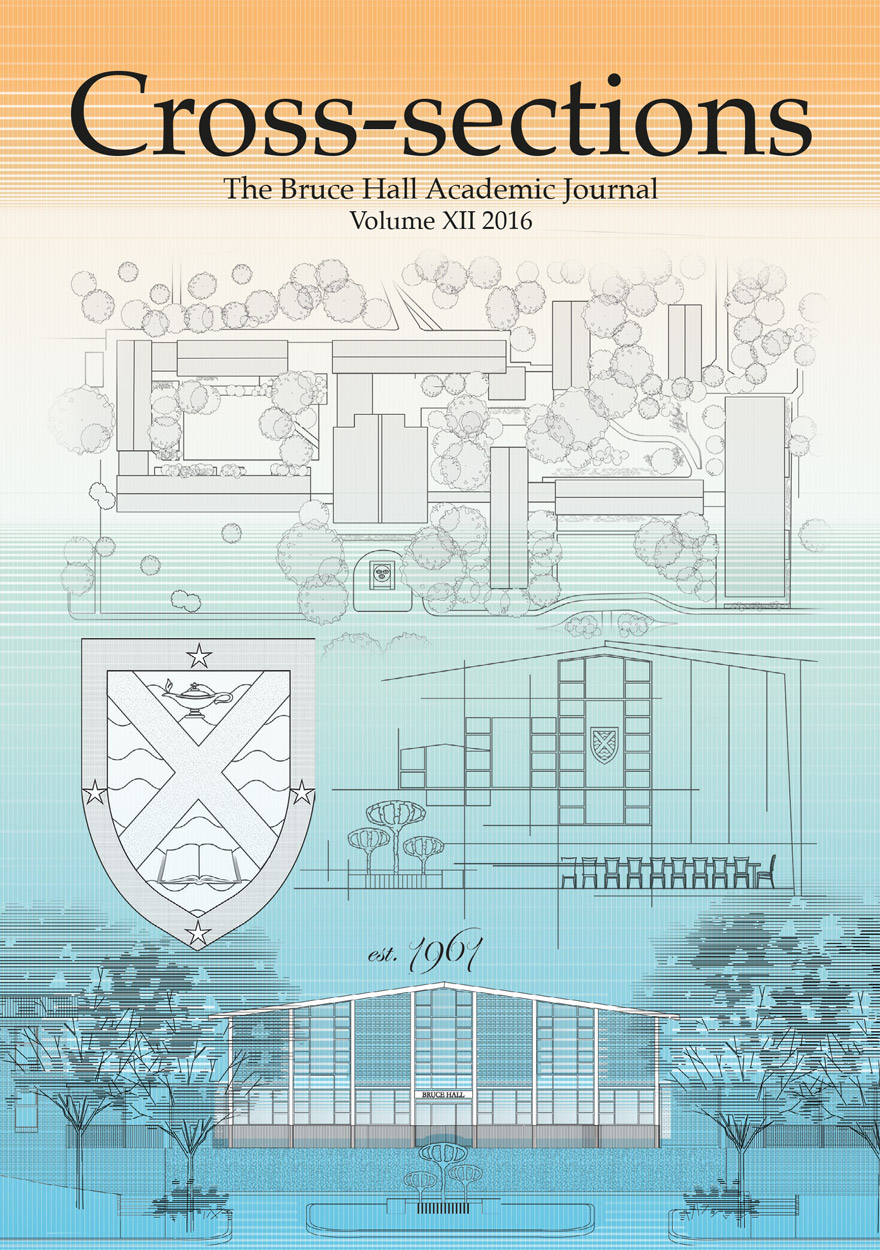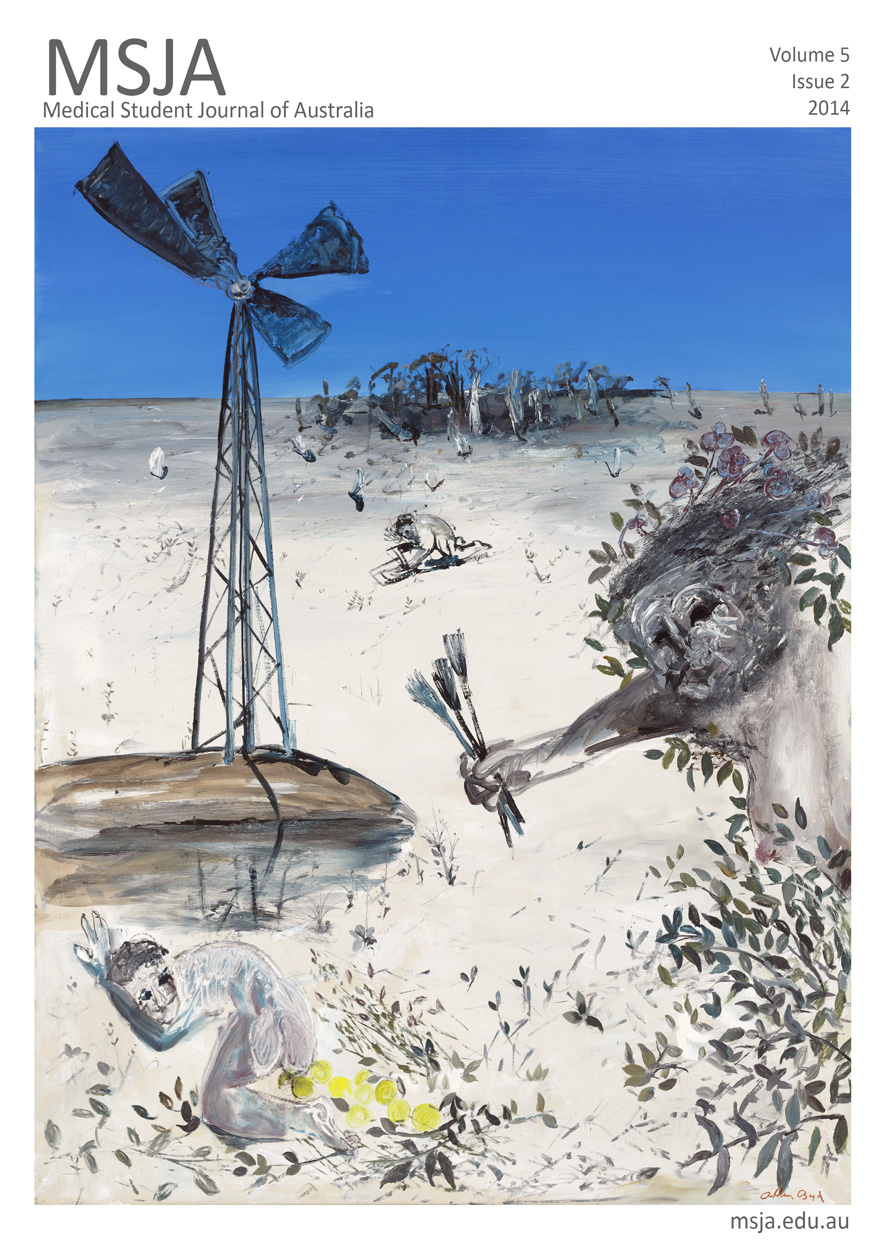Journals
Browse or search a variety of academic journals maintained by ANU Press, or find out more about the journal authors. Download the book for free or buy a print-on-demand copy.
Andrew Pawley »
Andrew Pawley is Professor in the Department of Linguistics, Research School of Pacific and Asian Studies, The Australian National University. He works on Austronesian and Papuan languages. His main theoretical interests are in understanding the nature of idiomatic command of a language.
Mary Anne Jebb »
Mary Anne Jebb is a Research Fellow at the Australian Institute of Aboriginal and Torres Strait Islander Studies. Previously, she was the Research Associate and Project Manager for the ARC Linkage project ‘Deepening Histories of Place’ at The Australian National University. She researches and writes in areas of Australian history, medical history, women’s history and Indigenous history. She has particular interest in the recording and use of spoken histories and sound for increasing understanding and participation in Australian history. Her books, sound productions and exhibitions include ‘Across The Great Divide; Gender Relations On Australian Frontiers’ with Anna Haebich (1992), Emerarra: A Man of Merarra (1996), Blood Sweat and Welfare (2002), Mowanjum (2008), ‘Noongar Voices’ with Bill Bunbury (2010), ‘Burlganyja Wanggaya’ (2012) and ‘Singing The Train’ (2014). She is working on a monograph biography and analysis of the visual narrative artworks of deceased Aboriginal artist and historian Jack Wherra.
Renata Grossi »
Renata Grossi is an interdisciplinary legal scholar at the Herbert & Valmae Freilich Foundation, at The Australian National University.
Louise Williams »
Louise Williams is an Australian journalist who has covered Asia for more than a decade, based in the Philippines, Thailand and Indonesia. She has worked primarily for the sister publications, The Sydney Morning Herald and The Age, but has also written for The Independent (London), The Observer (London), as well as filing reports for the BBC World Service. In 1999 she was part of the Herald's team covering East Timor which won the Walkley Award for excellence in journalism for coverage of the Asia Pacific region. In 1994 she won the Citibank Pan Asia Journalism Award in conjunction with Colombia University. She has written two books on the region and contributed to several others.
Roland Rich »
Roland Rich, an Australian national, is Executive Head of the United Nations Democracy Fund (UNDEF), a United Nations General Trust Fund, with the primary purpose of supporting democratisation around the world. It supports projects that strengthen the voice of civil society, promote human rights, and encourage the participation of all groups in democratic processes. Mr Rich is concurrently Officer-in-Charge of the United Nations Office for Partnerships (UNOP) which serves as a gateway for partnership opportunities with the UN family.
Mr Rich brings to the job over 30 years of experience as a diplomat, a scholar and a democracy promotion practitioner. Prior to his appointment to UNDEF, Mr Rich was at the Centre for Defence and Strategic Studies of the Australian Defence College, teaching and mentoring colonel-level officers undertaking a master’s degree in international relations. In 2005, Mr Rich was a research Fellow at the National Endowment for Democracy in Washington DC. Between 1998 and 2005, Mr Rich was the Director of the Centre for Democratic Institutions at The Australian National University which is Australia’s democracy promotion institute undertaking projects in the Asia-Pacific region. Mr Rich joined the Australian foreign service in 1975 and had postings in Paris, Rangoon, Manila and, from 1994-1997, as Australian Ambassador to Laos. He has also served as Legal Advisor and Assistant Secretary for International Organisations in the Australian Department of Foreign Affairs and Trade.
Mr Rich has contributed to the scholarly literature on democracy and democracy promotion. In 2004, together with Edward Newman, he edited The UN Role in Promoting Democracy published by United Nations University Press which examined the areas of comparative advantage the UN had in this field. His most recent book, in 2007, is Pacific Asia in Quest of Democracy published by Lynne Rienner Publishers which surveys the current state of democratic consolidation among the countries along Asia’s Pacific Rim.
John Spurway »
Dr John Spurway, an Australian of Irish, Latvian and English descent, has a Master of Arts in French Studies from the University of Sydney and a Master of Letters in Australian history from the University of New England. He is also a Doctor of Philosophy from The Australian National University, Canberra, and since 1992 has been a Fellow of the Society of Australian Genealogists. This book is the result of more than a decade’s archival research and fieldwork in Fiji, Tonga, Australia, New Zealand, Vanuatu and the United Kingdom. The author of several articles on Fijian and Tongan history that have appeared in the Journal of Pacific History and elsewhere, John now divides his time between Australia and Europe.
David Martin »
Dr David Martin is an independent applied anthropologist, working through Anthropos Consulting, as well as being a visiting scholar at the School of Archaeology and Anthropology at The Australian National University. He was previously a Visiting Fellow at the Centre for Aboriginal Economic Policy Research (CAEPR), and for a decade prior to that a Research Fellow there. His research and applied interests are focused on Aboriginal Australia, and include welfare reform, alcohol issues, economic and community development, native title, and governance. He has provided policy advice on settling native title claims and undertaken reviews of connection reports for Native Title Representative Bodies as well as for government agencies in Western Australia, South Australia and Victoria. He has also researched at the CAEPR on the capacity of mining agreements to deliver sustainable development outcomes for Aboriginal people, and more generally has undertaken extensive research and applied work on Aboriginal governance issues, including those relating to Prescribed Bodies Corporate and mining agreement-related trusts and corporations.
David Martin has considerable experience in delivering professional development courses for public servants, lawyers, anthropologists, mining company employees, and Aboriginal organisations. He is actively involved in outreach for the profession of anthropology, having served until recently for several years on the Executive of the Australian Anthropological Society, and has been involved in mentoring anthropologists in Aboriginal organizations and government agencies. He is a forceful advocate for the practice of an ‘engaged anthropology’ which is not just concerned with academic critique and analysis, but is actively involved in development and other contemporary issues.
Hirofumi Matsumura »
Hirofumi Matsumura is a physical anthropologist in the School of Health Science, Sapporo Medical University, Japan. During a 30-year research career, he has worked on numerous excavations in East/Southeast Asia. His bioanthropological analysis of archaeological skeletal remains has focused on prehistoric human migration, with particular emphasis on population history and movement during the Neolithic transition in Mainland and Island Southeast Asia.
Ann Moyal »
Dr Ann Moyal is a leading historian of science. She has written some ten books and many papers on social and institutional aspects of science, telecommunications, technology, and science policy in Australia for which she was made a Member of the Order of Australia and awarded the Centenary Medal. Her recent books include the prize-winning Platypus, the Extraordinary story of how a curious creature baffled the world. She has taught and researched in several Australian Universities, including The Australian National University, the New South Wales Institute of Technology, and Griffith University, Queensland. She married Joe Moyal in 1963.
Dennis Trewin »
Dennis Trewin, AO FASSA, was the Australian Statistician from July 2000 to January 2007. Prior to that he was Deputy Australian Statistician and Deputy Government Statistician in New Zealand. He has also been an Australian Electoral Commissioner. He was President of the International Statistical Institute, and has recently been working as a statistical consultant on international assignments.
Peter Carroll »
Peter Carroll is a research Professor in the Faculty of Business at the University of Tasmania. He has produced a range of books and journal articles on a wide variety of topics in policy and public administration in a career that began in the UK, moved to Fiji then to Australia. In particular, he has had an ongoing interest in the study of intergovernmental relations and regulatory reform, co-authoring ‘Microeconomic Reform and Federalism’, with Martin Painter and, with Helen Silver, Rex Deighton-Smith and Ron Walker ‘Minding the Gap – Appraising the promise performance of regulatory reform in Australia’ (ANU Press 2008). Much of his work reflects a life-long interest in the government regulation of business, especially at the international level, resulting in the book ‘Regulating International Business’ (Pearson Prentice Hall 2008), an edited work produced with Richard Eccleston. He has been a chief investigator on a number of ARC Discovery grants, one focused on the importance of policy transfer in policy making and he is currently editing a book on recent developments in policy transfer. In recent years his attention has focused on international organisations and the rapidly increasing international activities of government agencies traditionally regarded as ‘domestic’ in orientation. His most recent book (with Aynsley Kellow), ‘The OECD – A study of organisational adaptation’ (Edward Elgar 2011), is the first detailed, historical study of the OECD, which celebrates its fiftieth birthday in 2011. At present he is working on a study of Australian involvement with the UN specialised agencies, to be published by the Department of Foreign Affairs and Trade in 2011.
Patrick Kilby »
Dr Patrick Kilby is a political scientist with the School of Archaeology and Anthropology in the College of Arts and Social Sciences at The Australian National University. His research interests include NGOs, poverty and women’s empowerment in international development. He worked for Oxfam Australia for 20 years prior to coming to ANU and has had an association with the Australian Council for International Development since 1983. He has served on many of ACFID’s committees, and was a part of some of the events described in this book. He currently represents ANU on the ACFID Universities network.
David Russell Lawrence »
David Russell Lawrence is an anthropologist who has managed environmental programs in Melanesia and Southeast Asia for the Great Barrier Reef Marine Park Authority. His most recent book was a re-examination of the place in Melanesian anthropology of the Finnish sociologist Gunnar Landtman who spent two years working with the Kiwai people of the lower Fly estuary. He recently managed a large-scale survey of 300 communities in the Solomon Islands for the Community Sector Program and has assisted with a number of the annual RAMSI People’s Surveys in the islands. This work has given him insight into the colonial heritage of the Solomon Islands and a desire to tell the story of the establishment of the British Solomon Islands Protectorate through the eyes of the first Resident Commissioner, Charles Morris Woodford.
Barry Traill »
Dr. Barry Traill is a leading Australian conservationist. An ecological researcher and conservation advocate, he has been part of several successful conservation projects, such as the advocacy to stop large scale land clearing in Queensland. He has worked particularly on the conservation of woodlands in southern and northern Australia. He is a co-author of ‘The Nature of Northern Australia.’
Dr. Traill is currently Director of the Wild Australia Program, for Pew Environment Group- Australia.
John Woinarski »
John Woinarski has been involved in research, management, advocacy and policy relating to biodiversity conservation, particularly in relation to threatened species, in Australia since the 1970s. Much of this work has been undertaken in northern Australia, with a particular focus on threatened mammal species, but his research and management has also considered plants, invertebrates, birds, reptiles, the impacts of fire, pastoralism, forestry, mining and invasive species, monitoring, survey design, Indigenous land management, reserve design, translocations, and islands. This work has been recognised with the Eureka Prize for biodiversity research (2001), the Serventy Medal (for lifetime contribution to Australian ornithology) (2001), the Northern Territory Chief Minister’s Award for Research and Innovation (2008), and the Australian Natural History Medallion (2012). Until 2011, he was executive director of the biodiversity division of the Northern Territory government’s environment department, but then moved to Christmas Island. From 2003 to 2012, he was a member of the Threatened Species Scientific Committee, which provides advice to the Australian minister for the environment on conservation issues relating to threatened species. He is currently employed part-time as Professor in the Research Institute for the Environment and Livelihoods, Charles Darwin University, and within the North Australian Hub of the National Environmental Research Program.
Frank Fenner »
Frank Fenner was born in Ballarat, Victoria in 1914. He read medicine at the University of Adelaide, receiving Bachelor of Medicine and Bachelor of Surgery degrees in 1938 and a Doctor of Medicine in 1942. He also received a Diploma of Tropical Medicine from the University of Sydney in 1940. Between 1940 and 1946 he served in Egypt and Papua New Guinea as an officer in the Australian Army Medical Corps, where he worked on the malarial parasite.
After the war, he went to the Walter and Eliza Hall Institute of Medical Research in Melbourne, where he studied the virus that causes smallpox in mice. In 1949, on a fellowship at the Rockefeller Institute in New York, USA, he worked on tubercle bacilli. Returning to Australia in 1949, he was appointed Professor of Microbiology at the new John Curtin School of Medical Research at The Australian National University. Here he began studying viruses again, in particular the myxoma virus. He was interested in the balance between virus virulence and host resistance.
Prof Fenner was Director of the John Curtin School from 1967 to 1973. During this time he was also Chairman of the Global Commission for the Certification of Smallpox Eradication. In 1973 Prof Fenner was appointed to set up the new Centre for Resource and Environmental Studies at ANU. He held the position of Director until 1979.
Prof Fenner was elected to the fellowship of numerous faculties and academies, including Foundation Fellow of the Australian Academy of Science (1954), Fellow of the Royal Society (1958), and Foreign Associate of the United States National Academy of Sciences (1977).
During his career, Prof Fenner received many awards. Among these are the Britannica Australia Award for Medicine (1967), the Australia and New Zealand Association for the Advancement of Science Medal (1980), the World Health Organization Medal (1988), the Japan Prize (1988), the Senior Australian Achiever of the Year (1999), the Albert Einstein World Award for Science (2000), and the Prime Minister’s Science Prize (2002).
He passed away in late 2010.
Elizabeth Burns Coleman »
Dr Elizabeth Coleman is a lecturer in philosophy at the University of Wollongong. She holds a PhD in philosophy from ANU and has held a postdoctoral fellowship at the Centre for Cross Cultural Research, ANU. She has taught philosophy of art at ANU, and moral and political philosophy at La Trobe and Appropriation (2005) and has published articles on indigenous art in the Journal of Aesthetics and Art Criticism, the International Year Book of Aesthetics, and the Journal of Political Philosophy.
Maria Suzette Fernandes-Dias »
Dr Maria-Suzette Fernandez-Dias coordinates scholarly and research activities at the Centre for Cross-Cultural Research, ANU. She holds a PhD in French (postcolonial literature) from the University of Goa, India. She has taught comparative literature, linguistics and francophone literature at the University of Goa, and has worked as the educational and cultural coordinator of Alliance Francaise de Goa, where she managed the AF Art Gallery. Her literary awards include the Victor- Hugo Bicentenary Award (2002), Ford Foundation Campus Diversity Award (1996), Oheraldo Award for Children’s literature (1989), and the Vidya Award (1995 & 1996).
Hilary Charlesworth »
Hilary Charlesworth is Professor and Director of the Centre for International Governance and Justice in the Regulatory Institutions Network at The Australian National University. She also holds an appointment as Professor of International Law and Human Rights in the College of Law, ANU. In 2005 she was awarded a Federation Fellowship by the Australian Research Council for a project on building democracy and justice after conflict. She has held visiting appointments at United States and European universities.
She was the inaugural President of the Australian and New Zealand Society of International Law (1997-2001). She was Co-Editor of the Australian Yearbook of International Law from1996-2006 and has been a member of the Board of Editors of the American Journal of International Law 1999-2009. She was joint winner of the American Society of International Law’s 2006 Goler T Butcher Medal in recognition of ‘outstanding contributions to the development or effective realization of international human rights law’.
She has worked with various non-governmental human rights organisations on ways to implement international human rights standards and was chair of the Australian Capital Territory government’s inquiry into an ACT bill of rights, which led to the adoption of the ACT Human Rights Act 2004. In 2009 she was appointed as one of the four Australian members of the Permanent Court of Arbitration.
Penelope Marshall »
Dr Penelope Marshall holds a PhD in Political Science and teaches at the Crawford School of Public Policy at The Australian National University.
Ben Marwick »
Ben Marwick is an Assistant Professor of archaeology in the UW Anthropology Department. His main research activity is using models from evolutionary ecology to analyse past human behaviour, especially in mainland Southeast Asia and Australia. Ben’s technical specializations in stone artefact technology and geoarchaeology provide him with wide scope in time periods and geography. His specific interests include the hominin colonisation of mainland Southeast Asia, forager technologies and ecology in Australia and mainland Southeast Asia, and transitions to agriculture in mainland Southeast Asia.
Karen Hughes »
Karen Hughes is Senior Lecturer in Indigenous Studies at Swinburne University of Technology. She has also taught at Monash University and the University of South Australia, and in 2011 was a Visiting Fellow at University Paris 13. Her research focuses on intimate and gendered histories of the contact zone in New World settler-colonial societies, incorporating transnational perspectives. She is currently involved in a cross-cultural collaborative project with Indigenous communities in southern Australia and the United States, as well as an intergenerational study with the Ngukurr community of South East Arnhem Land. Her research pursues de-colonising methodologies through a partnership approach to ethnography.
Vanessa Castejon »
Vanessa Castejon is an Associate Professor at University Paris 13. Her work explores Aboriginal political claims, self-determination and sovereignty, and the image of Aboriginal people in France/Europe. Her recent publications include an article on her ego-histoire, ‘Identity and Identification: Aboriginality from the Spanish Civil War to the French Ghettos’ in Passionate Histories: Myth, memory and Indigenous Australia, (Aboriginal History/ANU E Press, 2010), edited by Frances Peters-Little, Ann Curthoys and John Docker. Her book, Les Aborigènes et l'apartheid politique australien, was published by Harmattan in 2005.
Oliver Haag »
Oliver Haag has been engaged in Indigenous Studies for almost ten years. He first became interested in the relationship between Indigenous autobiographies and the re/writing of Australian history. He has started to research European translations and marketing of Australian Indigenous literature and the ‘translation’ of Indigeneity into European contexts. In his ego-histoire, he explores the impact of travelling on his Romany heritage.
Anna Cole »
Anna Cole was born in south west England to Anglo-Irish/Celtic parents. As a child she migrated with her parents and siblings to live on Nyungar land in Western Australia. She began learning about Indigenous history as a student at the University of Western Australia while involved in activism around a sacred Wagyl water source. Her previous edited collections include, Uncommon Ground: White Women in Aboriginal History (with Victoria Haskins and Fiona Paisley, Aboriginal Studies Press, 2005) and Tattoo: Bodies, Art and Exchange in the Pacific and the West (with Nicholas Thomas and Bronwen Douglas, Duke University Press, 2005). Her co-written film documenting Indigenous debutante balls in urban Sydney, Dancing with the Prime Minister (November Films, 2010), was short-listed for a UN Media Peace Award. She has two young children and lives in the UK, where she teaches post-colonial history and literature at Brighton University.
ANU Press Journals
Aboriginal History Journal »
Since 1977, the journal Aboriginal History has pioneered interdisciplinary historical studies of Australian Aboriginal people’s and Torres Strait Islander’s interactions with non-Indigenous peoples. It has promoted publication of Indigenous oral traditions, biographies, languages, archival and bibliographic guides, previously unpublished manuscript accounts, critiques of current events, and research and reviews in the fields of anthropology, archaeology, sociology, linguistics, demography, law, geography and cultural, political and economic history.
Aboriginal History Inc. is a publishing organisation based in the Australian Centre for Indigenous History, Research School of Social Sciences, The Australian National University, Canberra.
For more information on Aboriginal History Inc. please visit aboriginalhistory.org.au.
Submission details
Please send article submissions to aboriginal.history@anu.edu.au.
Articles of about 7,000 words in length (including footnotes and references) are preferred, but submissions up to 9,000 words will be considered. Please submit an electronic version of the paper (text only without embedded images or scans) in Microsoft Word or RTF format, along with a short abstract and author biography as a separate document.
ANU Historical Journal II »
The ANU Historical Journal II (ANUHJ II) is an open-access, peer-reviewed academic history journal of the ANU College of Arts and Social Sciences and the ANU College of Asia and the Pacific. It is a revival of the ANU Historical Journal, which was published between 1964 and 1987. Contributors to the first journal included academics such as Ken Inglis, Manning Clark, John Ritchie and Oliver MacDonagh along with then-emerging scholars Iain McCalman, Michael McKernan, Margaret George, Coral Bell, John Iremonger, Alastair Davidson, Susan Magarey and Rosemary Auchmuty. As well as upholding the Journal’s commitment to the work of students and early career researchers, the ANUHJ II has expanded its focus to include memoirs, short articles and long-form book reviews.
The ANUHJ II invites submissions from students, graduates and academics of any Australian university.
For more information about the ANUHJ II, please visit anuhj.com.au
Australian Journal of Biography and History »
The Australian Journal of Biography and History is an initiative of the National Centre of Biography (NCB) in the Research School of Social Sciences at The Australian National University. The NCB was established in 2008 to extend the work of the Australian Dictionary of Biography and to serve as a focus for the study of life writing in Australia, supporting innovative research and writing to the highest standards in the field, nationally and internationally. The Australian Journal of Biography and History seeks to promote the study of biography in Australia. Articles that appear in the journal are lively, engaging and provocative, and are intended to appeal to the current popular and scholarly interest in biography, memoir and autobiography. They recount interesting and telling life stories and engage critically with issues and problems in historiography and life writing.
The journal publishes peer-reviewed articles on Australian historical biography, including biographical studies, studies relating to theory and methodology, and the associated genres of autobiography, life writing, memoir, collective biography and prosopography. We are especially interested in articles that explore the way in which biography and its associated genres can illuminate themes in Australian history, including women in Australian society, family history, transnational networks and mobilities, and Indigenous history.
Submission Details
Please send article submissions or abstracts to the Editor, Dr Malcolm Allbrook, National Centre of Biography, The Australian National University. Email: Malcolm.Allbrook@anu.edu.au. Articles should be in the range of 5,000 to 8,000 words (excluding footnotes), although longer submissions may be considered after consultation with the Editor. Style and referencing: please use footnotes in Chicago style, and follow British spelling.
East Asia Forum Quarterly »
East Asia Forum Quarterly grew out of East Asia Forum (EAF) online, which has developed a reputation for providing a platform for the best in Asian analysis, research and policy comment on the Asia Pacific region in world affairs. EAFQ aims to provide a further window onto research in the leading research institutes in Asia and to provide expert comment on current developments within the region. The East Asia Forum Quarterly, like East Asia Forum online, is an initiative of the East Asia Forum (EAF) and its host organisation, the East Asian Bureau of Economic Research (EABER) in the Crawford School of Public Policy in the ANU College of Asia & the Pacific at The Australian National University.
Submission details
Unsolicited submissions to EAF are welcome. An analytic op-ed piece that is accessible to a general audience and written in crisp language is required. The preferred length of submissions is around 800 words. Submissions will be double-blind reviewed and, if accepted for publication, edited for English fluency and house style before returned for clearance by the author. EAFQ does not use footnotes but would be extremely appreciative if hyperlinks to internet sources are included wherever possible. EAFQ reserves the right to determine the title for any piece, but will not publish a piece or a title without permission. A suggested title is appreciated. If you have any further queries, or would like to submit, please contact shiro.armstrong@anu.edu.au.
Human Ecology Review »
Human Ecology Review is a semi-annual journal that publishes peer-reviewed interdisciplinary research on all aspects of human–environment interactions (Research in Human Ecology). The journal also publishes essays, discussion papers, dialogue, and commentary on special topics relevant to human ecology (Human Ecology Forum), book reviews (Contemporary Human Ecology), and letters, announcements, and other items of interest (Human Ecology Bulletin). Human Ecology Review also publishes an occasional paper series in the Philosophy of Human Ecology and Social–Environmental Sustainability.
Submission details
For information on preparing your manuscript for submission, please visit www.humanecologyreview.org. To submit a manuscript to Human Ecology Review, please visit mstracker.com/submit1.php?jc=her, or email humanecologyreviewjournal@gmail.com.
Humanities Research »
Humanities Research is a peer-reviewed, open access, annual journal that promotes outstanding innovative, interdisciplinary and multidisciplinary scholarship to advance critical knowledge about the human world and society.
The journal is co-published by the Humanities Research Centre, The Australian National University, Canberra. It was launched in 1997 and went into hiatus in 2013. In 2022, the journal is resuming publication, reflecting the continuing strength of the humanities at The Australian National University, the rapid development of the interdisciplinary, environmental and public humanities over the last decade, and the opportunities for international collaboration reflected in the resumption of international travel in 2022.
Issues are thematic with guest editors and address important and timely topics across all branches of the humanities.
International Review of Environmental History »
International Review of Environmental History takes an interdisciplinary and global approach to environmental history. It encourages scholars to think big and to tackle the challenges of writing environmental histories across different methodologies, nations, and time-scales. The journal embraces interdisciplinary, comparative and transnational methods, while still recognising the importance of locality in understanding these global processes.
The journal’s goal is to be read across disciplines, not just within history. It publishes on all thematic and geographic topics of environmental history, but especially encourage articles with perspectives focused on or developed from the southern hemisphere and the ‘global south’.
Submission details
Please send article submissions or abstracts to the Editor, Associate Professor James Beattie, Science in Society, Victoria University of Wellington, PO Box 600, Wellington 6142, New Zealand. Email: james.beattie@vuw.ac.nz.
Abstracts should be no more than 200 words, and include a list of keywords. Articles should be in the range 5,000 to 8,000 words (including footnotes), although longer submissions may be considered after consultation with the editor. Style and referencing: please use footnotes in Chicago Style, follow British spelling, and use single quotation marks only. Find out more details about Chicago Style.
Lilith: A Feminist History Journal »
Lilith: A Feminist History Journal is an annual journal that publishes articles, essays and reviews in all areas of feminist and gender history (not limited to any particular region or time period). In addition to publishing research articles on diverse aspects of gender history, Lilith is also interested in publishing feminist historiographical and methodological essays (which may be shorter in length than typical research articles). Submissions from Australian and international early career researchers and postgraduate students are particularly encouraged.
The journal first began publication in Melbourne in 1984. It is the official journal of the Australian Women’s History Network, an organisation dedicated to promoting research and writing in all fields of women’s, feminist and gender history.
For more information about Lilith, please visit www.auswhn.org.au/lilith/.
Made in China Journal »
The Made in China Journal (MIC) is a publication focusing on labour, civil society and human rights in China. It is founded on the belief that spreading awareness of the complexities and nuances underpinning socioeconomic change in contemporary Chinese society is important, especially considering how in today’s globalised world Chinese labour issues have reverberations that go well beyond national borders. MIC rests on two pillars: the conviction that today, more than ever, it is necessary to bridge the gap between the scholarly community and the general public, and the related belief that open-access publishing is necessary to ethically reappropriate academic research from commercial publishers who restrict the free circulation of ideas.
Discontinued ANU Press Journals
Agenda - A Journal of Policy Analysis and Reform »
Please note: This journal ceased publishing in 2021.
Agenda is a refereed, ECONLIT-indexed and RePEc-listed journal of the College of Business and Economics, The Australian National University. Launched in 1994, Agenda provides a forum for debate on public policy, mainly (but not exclusively) in Australia and New Zealand. It deals largely with economic issues but gives space to social and legal policy and also to the moral and philosophical foundations and implications of policy.
Submission details
Authors are invited to submit articles, notes or book reviews, but are encouraged to discuss their ideas with the Editor beforehand. All manuscripts are subject to a refereeing process. Manuscripts and editorial correspondence should be emailed to: william.coleman@anu.edu.au.
Subscribe to the Agenda Alerting service if you wish to be advised on forthcoming or new issues.
Australian Humanities Review »
Please note: This journal ceased publishing with ANU Press in 2012. Current issues are available at australianhumanitiesreview.org.
Australian Humanities Review is a peer-reviewed interdisciplinary journal featuring articles, essays and reviews focusing on a wide array of topics related to literature, culture, history and politics.
craft + design enquiry »
Please note: This journal ceased publishing in 2015.
craft + design enquiry is an open-access, peer-reviewed journal promoting and disseminating research excellence generated by and about the craft and design sector. craft + design enquiry investigates the contribution that contemporary craft and design makes to society, establishing a dialogue between craft and design practice and cultural, social and environmental concerns. It includes submissions from across the field of craft and design from artists and practitioners, curators, historians, art and cultural theorists, educationalists, museum professionals, philosophers, scientists and others with a stake in the future developments of craft and design.
ANU Student Journals
ANU Undergraduate Research Journal »
Please note: This journal is now published via the ANU Student Journals platform; the latest issues can be found here: studentjournals.anu.edu.au/index.php/aurj
The ANU Undergraduate Research Journal presents outstanding essays taken from ANU undergraduate essay submissions. The breadth and depth of the articles chosen for publication by the editorial team and reviewed by leading ANU academics demonstrates the quality and research potential of the undergraduate talent being nurtured at ANU across a diverse range of fields.
Established in 2008, AURJ was designed to give students a unique opportunity to publish their undergraduate work; it is a peer-reviewed journal managed by a team of postgraduate student editors, with guidance from the staff of the Office of the Dean of Students.
Burgmann Journal - Research Debate Opinion »
Please note: This journal is now published via the ANU Student Journals platform; the latest issues can be found here: studentjournals.anu.edu.au/index.php/burgmann
Burgmann Journal is an interdisciplinary, peer-reviewed publication of collected works of research, debate and opinion from residents and alumni of Burgmann College designed to engage and stimulate the wider community.
Cross-sections, The Bruce Hall Academic Journal »
Please note: This journal is now published via the ANU Student Journals platform; the latest issues can be found here: studentjournals.anu.edu.au/index.php/cs
Representing the combined energies of a large group of authors, editors, artists and researchers associated with Bruce Hall at the ANU, Cross-sections collects a range of works (from academic articles and essays to photography, digital art and installation artwork) that represents the disciplinary breadth and artistic vitality of the ANU.
Presenting a challenging and absorbing way for students to hone vital research skills, in the process, Cross-sections nurtures a fruitful environment of collaborative interaction between academics and students.
Medical Student Journal of Australia »
Please note: This journal ceased publishing in 2015.
The Medical Student Journal of Australia provides the medical school of The Australian National University with a platform for medical students to publish their work in a peer-reviewed journal, communicating the results of medical and health research information clearly, accurately and with appropriate discussion of any limitations or potential bias.
Merici - Ursula Hall Academic Journal »
Please note: This journal is currently not publishing any new issues.
Merici is the combined works of undergraduate authors at Ursula Hall. Merici contains research and analysis from a range of disciplines and is thoroughly reviewed by ANU academics to ensure the showcasing of the best Ursula Hall has to offer.
The Human Voyage: Undergraduate Research in Biological Anthropology »
Please note: This journal is now published via the ANU Student Journals platform; the latest issues can be found here: studentjournals.anu.edu.au/index.php/hv
The Human Voyage: Undergraduate Research in Biological Anthropology is a journal that publishes outstanding student articles in all areas of biological anthropology, including primatology, palaeoanthropology, bioarchaeology and human behavioural ecology.
While the primary goal of this journal is to publish work of the highest quality authored by undergraduate students, it will also educate students in regards to publishing in academia. All submissions will be peer-reviewed and edited by ANU academic staff.





